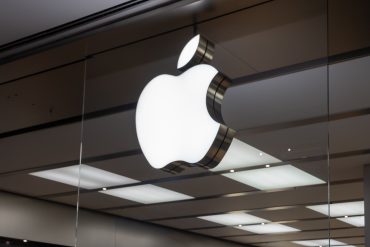

Apple Store fees face historic EU crackdown as tech giant contests landmark antitrust penalties across European markets
Key Takeaways
- Apple appeals €500 million EU fine challenging the European Commission’s unprecedented penalty under the Digital Markets Act for App Store anti-steering violations
- App Store fee structure overhaul reduces maximum commission from 30% to 15% in EU, with new tiered pricing system effective January 2026
- Global App Store revenue surges 12% reaching $8.4 billion in fiscal Q3 2025 despite regulatory headwinds and compliance costs
Introduction
Apple Inc. formally appeals a €500 million fine from the European Union, marking the first major legal challenge to the bloc’s Digital Markets Act. The tech giant describes the penalty as “unprecedented” and contests the required App Store changes as regulatory overreach.
The European Commission imposed the fine in April, determining Apple violated rules by preventing app developers from steering users to cheaper payment alternatives outside its ecosystem. Apple submitted its appeal to Europe’s second-highest court this week, meeting the deadline to contest the Commission’s decision.
Key Developments
The European Commission’s ruling centers on Apple’s technical and commercial restrictions that blocked developers from directing users to external payment solutions. The fine represents one of the first major enforcement actions under the Digital Markets Act, which targets large technology platforms.
Apple implemented significant App Store changes in March 2024, including support for alternative marketplaces and third-party browser engines in the EU. The company recently removed anti-steering barriers, allowing developers to promote external payment options within their apps.
However, Apple claims the EU has expanded the definition of steering to include in-app promotions, webviews, and third-party app links. The company argues these requirements exceed legal mandates and create confusion for developers while harming user experience.
Market Impact
Despite regulatory challenges, Apple’s App Store maintains strong financial performance. Global App Store revenue increased 12% year-over-year in June 2025, reaching $8.4 billion for the fiscal third quarter. The platform generated $91.3 billion globally in 2024, with over $27.39 billion from commissions.
Analysts remain optimistic about Apple’s prospects, with Bank of America maintaining a “Buy” rating and $235 price target. The firm views regulatory risks as manageable compared to Apple’s scale and innovation capabilities.
The €500 million fine represents approximately 0.5% of Apple’s annual net profit, though failure to comply could trigger daily penalties of up to €5 million. These potential costs create ongoing financial pressure on Apple’s high-margin Services segment.
Strategic Insights
Apple’s compliance strategy involves restructuring its EU App Store operations through a new tiered fee system. The maximum commission drops from 30% to 15%, with most developers paying closer to 10% under the revised structure. A Core Technology Commission of €0.50 per app install applies after the first million downloads.
The company splits services into two tiers: Tier One offers limited services at 5%, while Tier Two provides full services at 13%, reduced to 10% for small businesses and subscriptions. This approach allows developers to reduce fees by opting out of certain Apple services.
Revenue diversification shows positive trends, with non-gaming categories driving increased App Store income. Productivity, lifestyle, and educational apps demonstrate growing consumer demand beyond traditional gaming strongholds.
Expert Opinions and Data
Apple defends its position through official statements, asserting the European Commission exceeds legal requirements. “Today we filed our appeal because we believe the European Commission’s decision – and their unprecedented fine – go far beyond what the law requires,” the company states.
The tech giant emphasizes compliance efforts while criticizing regulatory scope. “As our appeal will show, the EC is mandating how we run our store and forcing business terms which are confusing for developers and bad for users,” Apple explains in statements to Bloomberg.
Industry critics, including Epic Games and Spotify, view Apple’s changes as insufficient attempts to maintain control while appearing compliant. They argue the modifications fail to foster genuine competition in the app marketplace ecosystem.
Investment analysts acknowledge regulatory challenges but emphasize Apple’s resilience. The company’s Services segment generated $78 billion in 2024, demonstrating the platform’s continued value despite fee reductions and compliance costs.
Conclusion
Apple’s appeal represents a pivotal test of European Union authority over Big Tech platforms. The case establishes precedents for digital marketplace regulation while forcing fundamental changes to Apple’s business model in its second-largest market.
The outcome influences broader platform governance trends, affecting how technology companies structure developer relationships and revenue models. Apple’s compliance strategy demonstrates the practical challenges of adapting established ecosystems to new regulatory frameworks while maintaining profitability and user experience.








